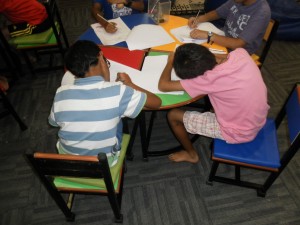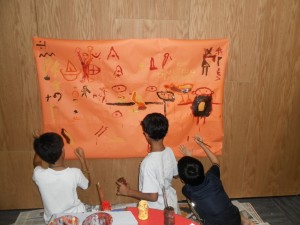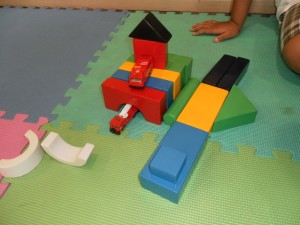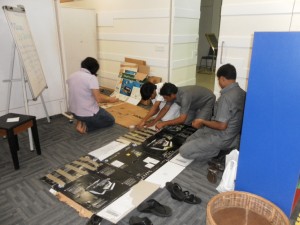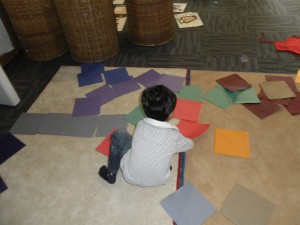 I sang, cajoled, and commented myself hoarse.
I sang, cajoled, and commented myself hoarse.
The children were busy in the block area and summoned me to see their structures. Approvingly, I listened to their narratives of each creation. Together, we counted how many blocks. When conflicts arose, I spun them like a seasoned politician, reframing destruction as addition (the Hindu god Shiva’s many arms would have given us thumbs up) and half-hearted check-ins and apologies as very friendly fixes. The children smiled. So did I. And took a deep breath.
I sang our way through transitions with rounds of “If you’re ready and you know it, come over here” (hooray for literalism!), “My name’s Tyrannosaurus Rex” (actually, rather than obsessing over dinosaurs, these kids rattle off the name of Beyblades — hello, media), and “Miss Laurel Says,” (yes, they call me Miss, as in “Your shirt is wet, Miss.” “Yes,” I replied, acknowledging my omnipresent pit soak. “Yes it is.”). At Snack, we again played The Name Game. At the end of the day, we sang Jambo and Paw Paw Patch. The classroom was alive with the sound of — music? Whatever you call my singing.
At lunchtime, I found my voice in a different way — as a teacher of older children and writing coach. I dove into commenting on the stories and observations they’d recorded in their Art Detective Notebooks, praising their process, thinking, creativity, and detail. I loved it.
And when these big kids joined us for their 4-7 pm session, I came alive with casual chat (topics ranging from end of the world, medical emergencies, and math) and a rocking session of Big Booty. I’m not sure that they’ve ever seen a damp-browed, 31-year-old American woman shake her groove thang in a rhythm-based call-and-response game with a very silly title, but by the end, they didn’t want to leave.
Sweat-soaked, I waved them goodbye. My voice was spent. But I hope it reverberated that evening, in one way or another.
Continue reading


